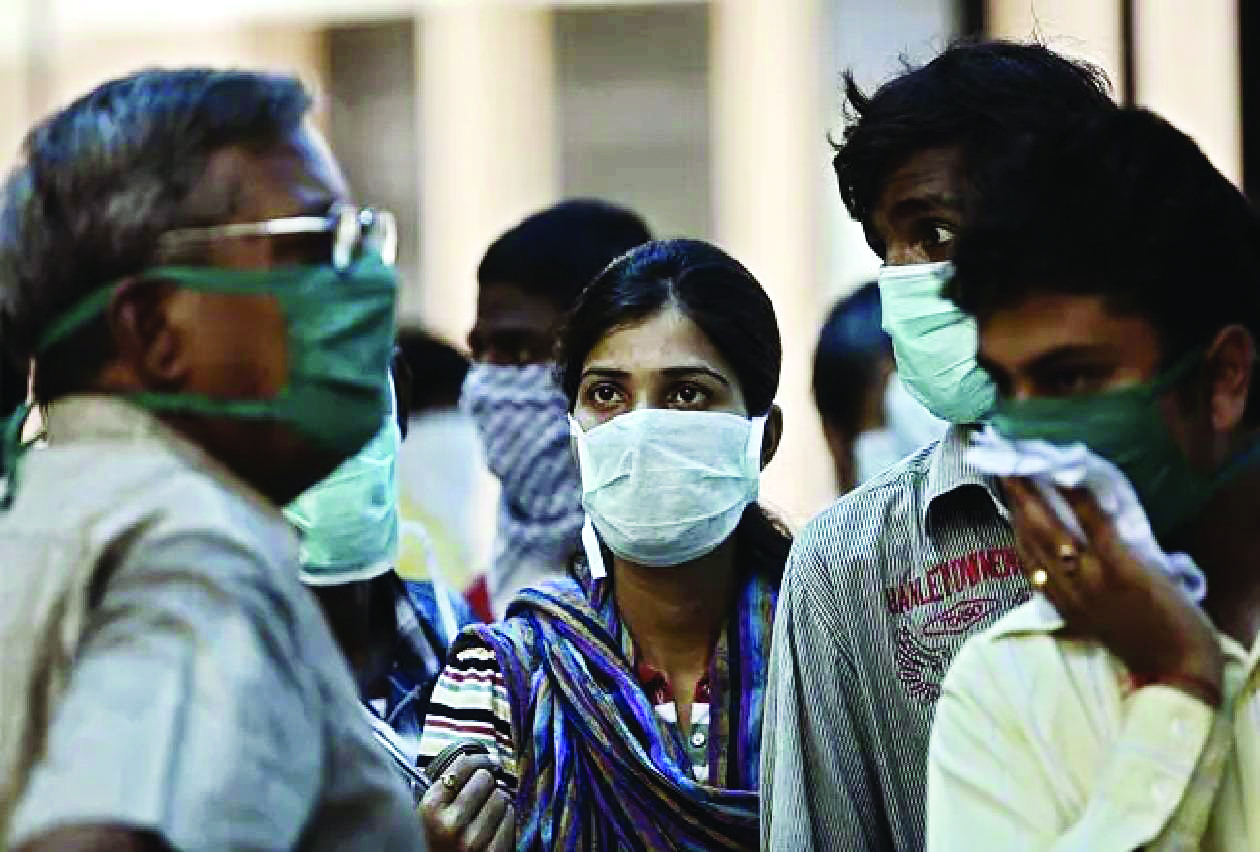Triggering mental maladies
A surge in H3N2 influenza cases is negatively impacting the mental health of affected persons — presenting a need to address both physical and mental symptoms simultaneously

I have been experiencing a dry cough, splitting headaches, a blocked nose, a sore throat, and a cold for the past week. My doctor diagnosed me with the flu and said that the symptoms would resolve on their own. However, I am feeling extremely stressed about my persistent cough and not feeling like myself. It is affecting my mood, and work productivity, and I do not feel like socialising with friends. Why do I feel like this? What can I do?
“When the body is sick, the mind worries. When the mind is sick, the body is affected.”
- Buddhist proverb
Your doctor is correct that there is an influenza strain going around in India. Influenza, commonly referred to as the flu, is a contagious viral infection that affects the respiratory system. Each year, India witnesses a surge of flu cases from January to March, and again in the post-monsoon period.
According to the Indian Health Ministry, the current surge in influenza in our country appears to be more aggressive and long-lasting. The symptoms, like cough and congestion, can last up to three weeks. Cases of the H3N2 strain have been surging throughout the country, particularly in Karnataka, Delhi, and other states. The H3N2 is a type of influenza virus called the influenza A virus. Recently, there were two reported deaths due to the same in people with complex medical histories. In certain cities, particularly in West Bengal, there has also been a surge in adenovirus-related concerns, mainly affecting children.
What is the flu? What are the common symptoms of the current strain?
Influenza A subtype of H3N2 affects mainly the upper respiratory tract, sometimes presenting with fever, persistent cough, sore throat, nausea, body ache, and diarrhoea. Those with comorbidities can have myriad presentations and can develop secondary infections.
Immunity and mental health
One of the common reasons cited for flu is low immunity. Our immunity is impacted by multiple factors like our age, sex, infection history, genetics, lifestyle, sleep, nutrition, and even mental health.
Psychoneuroimmunology is the study of the interaction between the mind, the central nervous system, and the immune system. Communication between these systems is complex, but psychological phenomena such as stress and depression may impact the immune system. You may have heard of the fact that those with high stress are likely to have gotten sick during the stressful phase. One of the underlying reasons is higher cortisol and adrenaline levels which cause the body to be in a chronic stress state.
How does the flu impact our mental health?
Our physical health and mental health go hand in hand. The flu can cause:
* Brain fog and lack of concentration;
* Sleep issues and restlessness;
* Mood issues like depression;
* Unmasking of underlying issues like anxiety and depression;
* Anxiety, especially health anxiety;
* Fatigue and generalised weakness.
What to do in case you have the flu?
For your physical health
* Hydrate: Hydrating with water and electrolytes can help the body come back to homeostasis;
* Eat well: Do not ignore your meals. Your body requires the raw material to rebuild. Aim for a balanced diet comprising proteins, fats, carbohydrates and vitamins from fresh fruits and salads;
* Rest and sleep: Conserve the body’s energy reservoirs by getting ample rest and sleep;
* Steam: Your nasal and respiratory passages open up, helping to loosen phlegm and mucus, making it easier to breathe;
* Avoid antibiotics without prescription: Overuse of antibiotics should be avoided for a viral infection unless there is proof of secondary infection from bacteria;
* Wear a mask: Avoid spreading the virus to others by wearing a mask and washing your hands regularly.
For your mental health after the flu has subsided
Some of the best ways to overcome the post-viral slump is by endorsing a healthy lifestyle. Recalibrating your mental health is possible through simple steps that can have a compounding effect.
* Sun and air: Sunlight is a natural disinfectant that aids in vitamin D absorption, melatonin resetting, and the production of feel-good chemicals. Make it a point to get some sunlight each day, open up your windows and let the fresh air in;
* Sleep: The body heals and repairs the best during sleep.
While it can be hard for some to sleep at night during the sickness bout, the idea should be to keep the sleep cycle as regular as possible. Avoid gadgets at night, avoid caffeine, and allow the body to rest;
* Meditation, relaxation and reading: To lower your stress levels, find activities that calm you down. Instead of mindless binge-watching, go for reading;
* Solving puzzles: Using the brain faculties helps reduce the brain fog;
* Walk or free hand exercise: Increasing the blood flow to the brain helps in better cognition, mood, sleep and overall well-being;
* Stress reduction: Ensure you address chronic stress and aim to lower it.
Prevention is better than cure
Influenza vaccination is an excellent way to reduce the chances of contracting a viral illness, as are masks, distancing, hand washing and hygiene.
Send your questions to [email protected]



